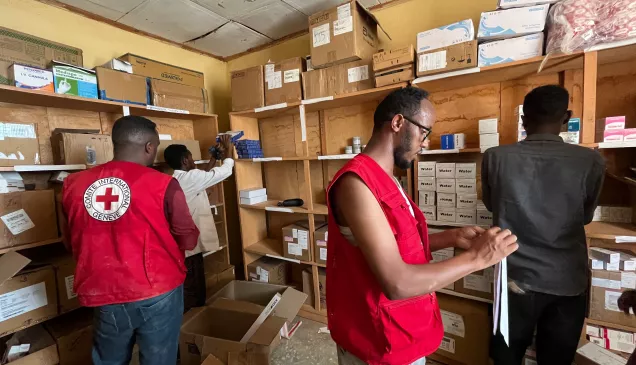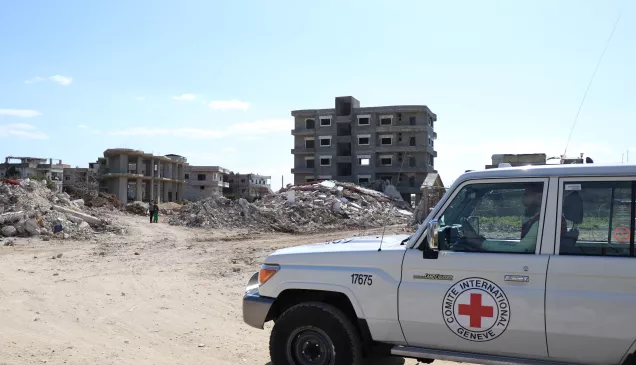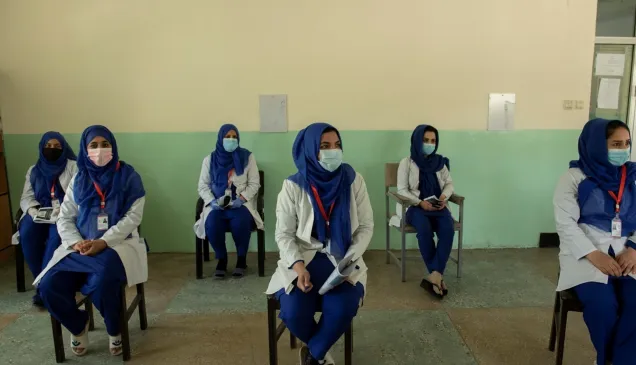Bangladesh: Saving lives amid the chaos of the emergency room
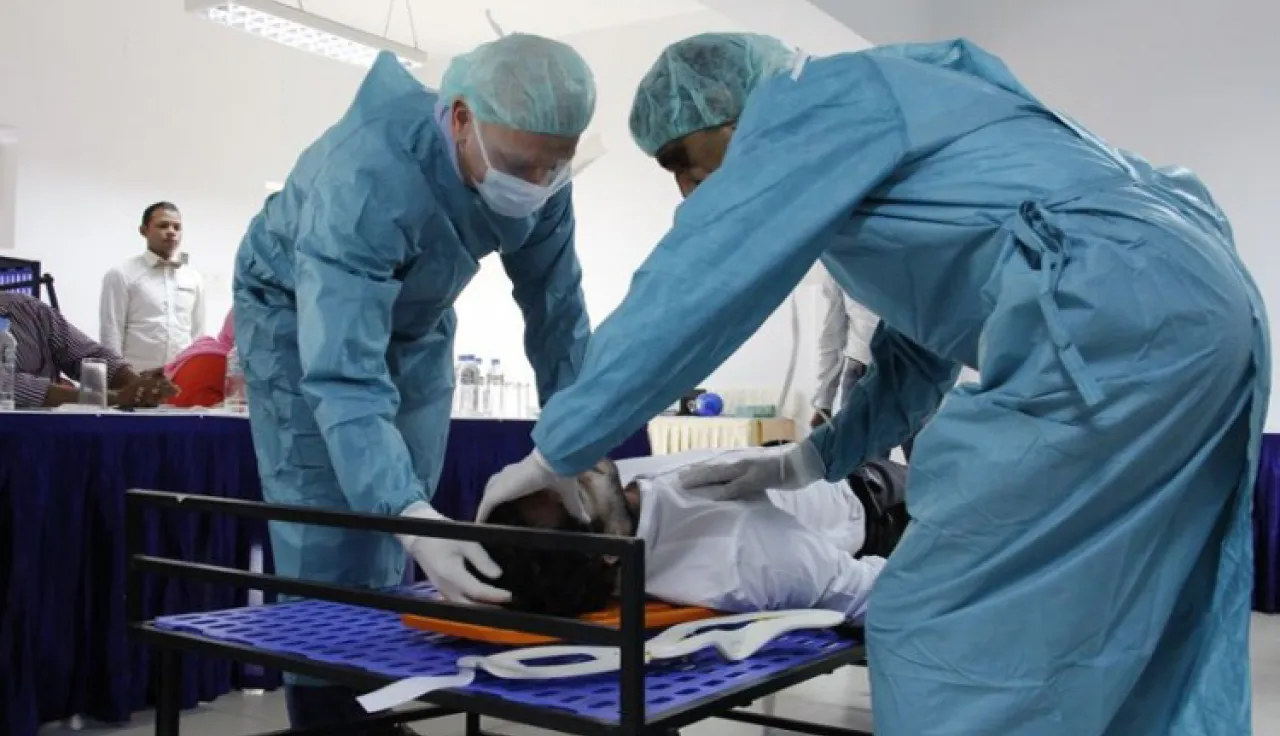
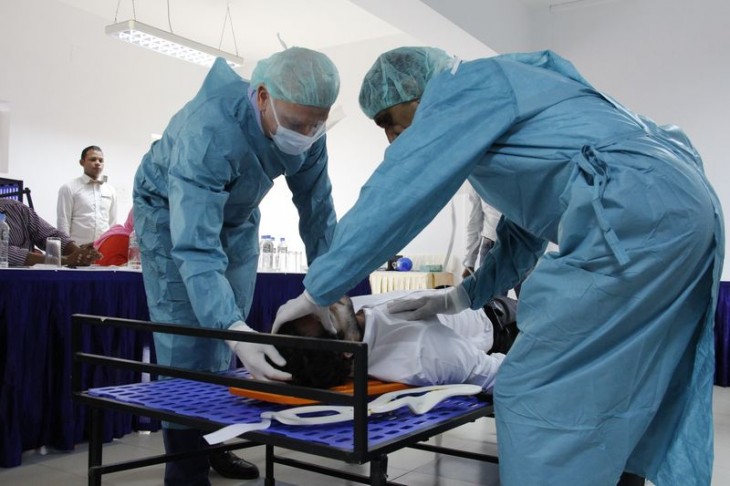
Trainers demonstrate how to carry out an initial assessment of a trauma patient newly arrived in the emergency room. CC BY-NC-ND / ICRC / Rufas Rafi Sircar
An ambulance arrives, its alarm blaring. A patient with head and chest injuries is placed on a wheeled stretcher and taken into the hospital's emergency room. Amid the chaos and anxieties of staff and waiting patients, another life has to be saved, perhaps with only seconds to spare.
The above scenario is typical of emergency rooms in any medical facility. Hence, good trauma care during such critical moments is crucial. Timely and responsive care in an emergency room (ER) can successfully treat life-threatening injuries and sustain life.
The ICRC's Emergency Room Trauma Course (ERTC) is an advanced training session on life support and trauma management that enables doctors to establish a simple and systematic approach to treating trauma patients when they arrive in a hospital ER. It helps increase the chances of patient survival and reduce the chances of mortality and morbidity.
Recent courses, involving 40 participants from civilian, police and military medical institutions, have been organized by the ICRC in Dhaka and Chittagong. Two experienced ICRC trainers, Dr Khurshid Iqbal and Dr Martin Herrmann, themselves practicing surgeons, led the training on standardized diagnostic and therapeutic procedures.
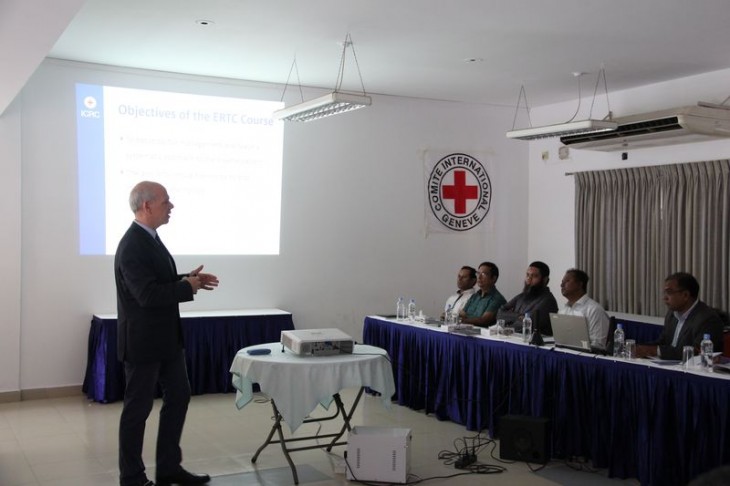
An ICRC trainer addresses participants at the Emergency Room Trauma Course in Dhaka.
CC BY-NC-ND / ICRC / Rufas Rafi Sircar
Learning new skills to save lives
Expressing their satisfaction with the two courses in Bangladesh, they said: "In this evolving world, the number of trauma patients we deal with is quite high. Hence, we want to sensitize these participating doctors and nurses on how to treat different types of trauma patients when they come into the ER. Those who take part in the ERTC should then be able to use what they have learnt to save lives."
Those benefiting from the courses were doctors and nurses from Dhaka and Chittagong Medical College and Hospital, as well as personnel from the Bangladesh Armed Forces, the Central Police Hospital, Dhaka, Al-Markazul Islami Bangladesh, the Divisional Police Hospital Chittagong and Al Amin Hospital.
Expressing his appreciation of the training course, Lt. Col. Dr M. Kabir Ahmed Khan, a veteran of medical emergencies in Bangladesh and peacekeeping missions in Kuwait and South Sudan, said: "From an armed forces medical facility standpoint, such training has high importance as we often deal with ballistic injuries. Given the wide pattern of life-threatening injuries we see, I believe this trauma management course will be extremely useful for me and my colleagues."
Throughout the three days of hands-on training and practical sessions, participants became familiar with detailed approaches to the initial assessment of patients and how to deal with shock, trauma, limb and burn injuries.
The ICRC has a long experience in providing health care to trauma victims, and runs ERTC and similar courses worldwide. The first took place in Bangladesh, for armed forces medical staff, in 2014. Those who participated in the most recent training session are keen to pass their newly acquired skills on to fellow colleagues in their respective health-care facilities.

